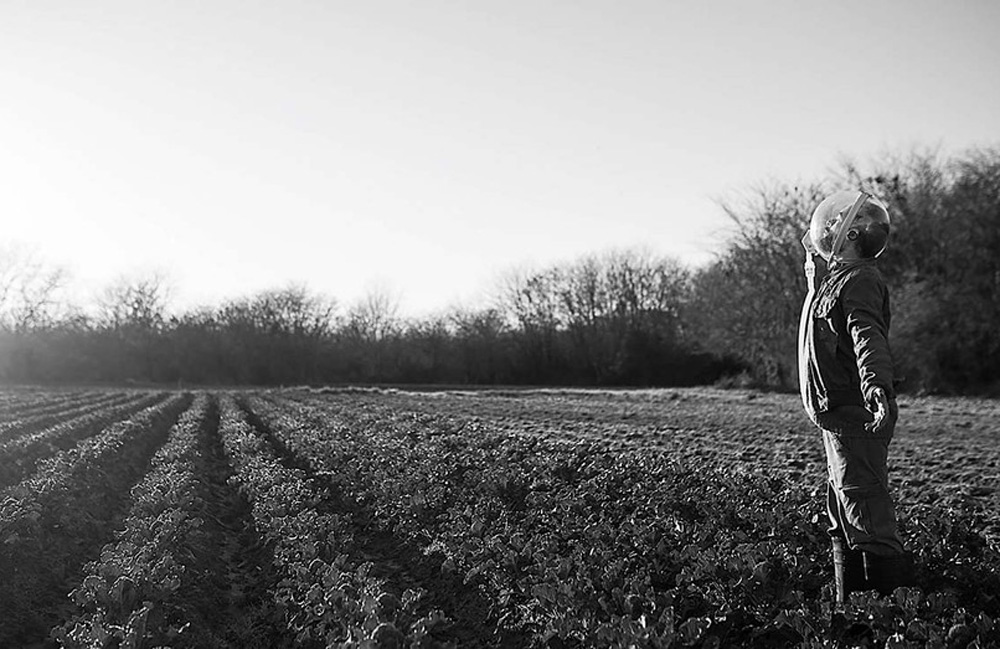Time is slippery in “The Dog Who Wouldn’t Be Quiet,” which gives new meaning to life passing by in a flash. In the span of just 73 minutes, it’s a privilege to get to know Sebastian (Daniel Katz), who one suspects will be unlikely to be noted by history from his small corner of the universe but makes claim through the sheer act of perseverance then the purpose of it all is unclear. Naturally, that existential angst that Sebastian comes to feel seems to be intuited by his dog first, who the neighbors complain keeps them awake with his moans at night, presumably because it has not being fed enough. Even without Sebastian’s insistence that he’s put out a new food dispenser, it’s safe to assume he cares too deeply about the pet to let it go hungry, even as he’s required to take a number of different jobs to keep it in kibble, with a landscaping gig to tend to as he pursues part-time work as a graphic designer.
If it seems like Sebastian’s on a treadmill, director Ana Katz and co-writer Gonzalo Delgado pull off a remarkable feat in “The Dog Who Wouldn’t Be Quiet” when that feeling of being stuck in loopy conversations and any personal or professional progress is wiped away far more easily than it is to gain collides with the march of time, which stops for no one. Katz makes some exceptions within her power when the truly traumatic occurs for Sebastian, dipping into hand-drawn sketches to slow things down and etch them into memory, but by and large, she lets momentum become such an unstoppable force that Sebastian can’t help but the increasingly strange reality that unfolds before him, whether it’s the dystopian office politics that prevent his bosses from firing him outright for bringing his dog to work, hoping instead that he can send a resignation by telegram that will alleviate any legal burden on them, or a pandemic that threatens to bring anyone who dares to breath the air above four feet to their knees.
The sense of apathy that sets in for Sebastian when he recognizes he has no control of what happens to him is dispiriting, but Katz makes the sharp observation that when he experiences such impermanence, both good and bad will pass. While Sebastian isn’t one to express his emotions strongly, with time marked primarily with the changes in his hair, Katz often creates sensational scenes in every sense of the word around the character, bringing out his frustration with his mother’s impending second marriage with the chopping of eggplant for moussaka as she’s prattling on with friends or saving his first real laugh for when he feels as if he’s finally a part of something when he finds himself helping out a farming collective. As attuned as the film is to the pervasive feeling of helplessness that’s been in the air for the past year, it’s the joy throughout that leaves more of an impression as the small, unpredictable turns that life takes Sebastian can only lead to a smirk no matter what they portend and the creativity Katz shows implies ingenuity is a saving grace, somehow making a film about going nowhere that manages to take audiences somewhere new.
“The Dog Who Wouldn’t Be Quiet” does not yet have U.S. distribution.




